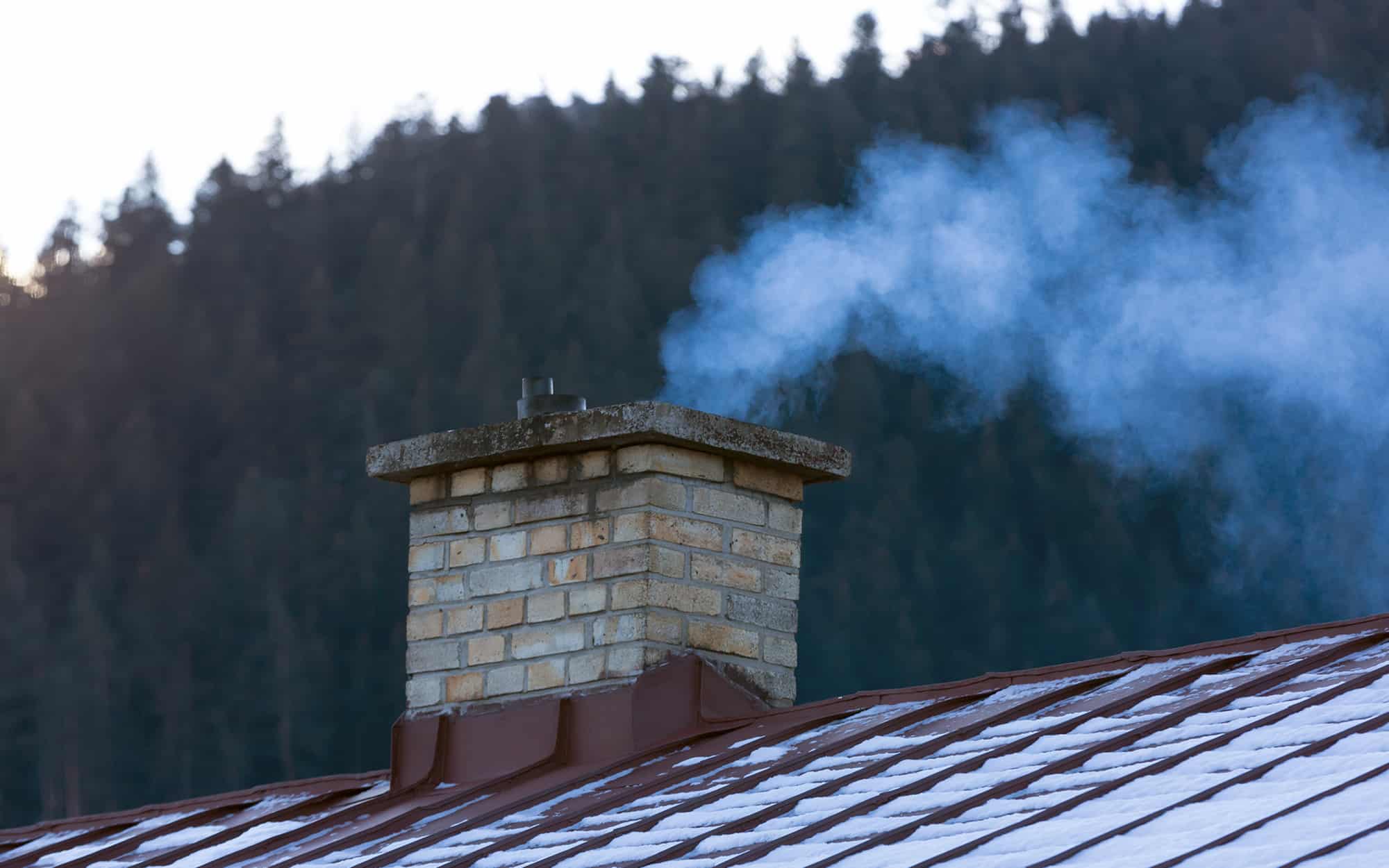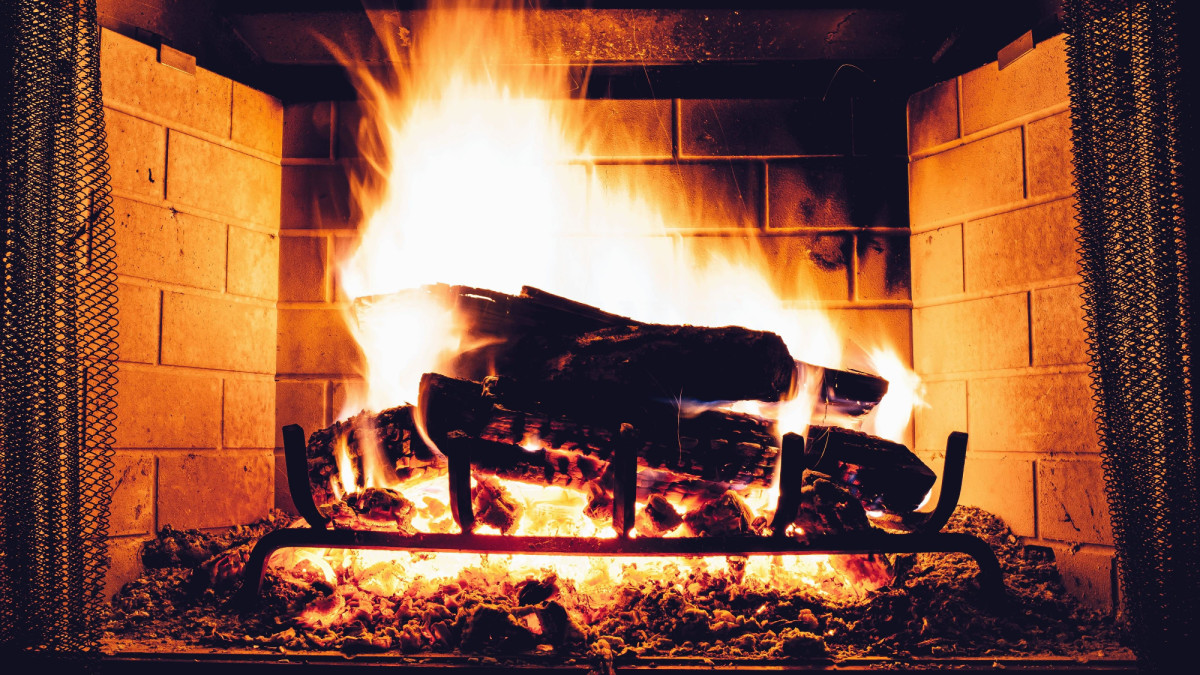Imagine coming home after a long day, eager to unwind by the cozy warmth of your fireplace. You light it up, expecting soothing crackles and comforting heat, but instead, you’re met with an unwelcome surprise: your house smells like smoke.
It’s not the aromatic woodsy scent you hoped for, but a lingering, unpleasant odor that fills your space. You might feel concerned, wondering if something’s wrong or if there’s a hidden danger lurking behind those flames. This scenario can be frustrating and unsettling, especially when all you want is to relax.
But don’t worry, you’re not alone in this experience. Many homeowners face this issue, and it can often be easily resolved. Understanding why your fireplace is causing a smoky smell in your house is the first step towards reclaiming your cozy haven. Dive into this article to uncover the common reasons behind this problem and discover practical solutions that can help restore your fireplace’s welcoming ambiance. Let’s ensure your home remains a safe and pleasant retreat for you and your loved ones.
:max_bytes(150000):strip_icc()/get-smoke-smell-out-of-home-GettyImages-1927882066-83ddfe5a13504ad89d1e4f65eefbdf5f.jpg)
Credit: www.realsimple.com
Common Causes Of Smoke Smell
Having a fireplace brings warmth and charm to a home. Sometimes, it can bring the unwanted smell of smoke too. Understanding the common causes of this issue helps in resolving it effectively. Knowing these causes ensures a cozy and smoke-free environment.
Chimney Blockage
Blocked chimneys often cause smoke smell indoors. Leaves, bird nests, or debris can obstruct the chimney. This prevents smoke from escaping properly. Regular cleaning and inspection of the chimney is essential.
Improper Ventilation
Proper ventilation is crucial in keeping smoke smell away. If the fireplace lacks adequate airflow, smoke accumulates inside. Ensure that vents and openings are clear and functional. Good airflow helps direct smoke outside.
Negative Air Pressure
Negative air pressure pulls smoke into the house. This happens when air escapes faster than it enters. Exhaust fans and other appliances can cause this. Balancing indoor air pressure is important.
Damp Wood
Burning damp wood produces more smoke than dry wood. It leads to a strong smoke smell. Ensure wood is dry and properly seasoned before use. Dry wood burns cleaner and reduces smoke odor.

Credit: ahillcstl.com
Immediate Solutions
Discovering your house smells like smoke can be unsettling. When using the fireplace, you expect warmth and comfort, not smoke. Immediate solutions are necessary to tackle this issue effectively. Implementing quick fixes can prevent smoke from lingering in your home. Let’s dive into practical steps to ensure your fireplace experience remains pleasant.
Check For Blockages
Blockages in the chimney often cause smoke issues. Inspect the chimney for debris or nests. Birds and animals can create obstructions. If you notice any blockages, remove them promptly. Regular chimney checks keep your fireplace functioning properly.
Open Windows And Doors
Opening windows and doors helps circulate air. Good ventilation reduces smoke indoors. Fresh air can push smoke outside. This simple step makes a big difference. Proper airflow keeps your home smoke-free.
Use Dry Wood
Wet wood generates more smoke. Always choose dry wood for your fireplace. Dry wood burns cleaner and produces less smoke. Store wood in a dry place to ensure it stays moisture-free. This reduces smoke and enhances your fireplace experience.
Long-term Fixes
Does your home smell like smoke when using the fireplace? This can be annoying. It can also impact indoor air quality. Quick fixes might not always work. Long-term solutions are essential. They ensure a safer and more comfortable home environment. Here are some effective strategies.
Install Chimney Cap
A chimney cap prevents downdrafts. Downdrafts push smoke back inside. It also keeps debris out. This makes your chimney more efficient. Chimney caps are affordable and durable. They also keep animals out. This reduces blockages and smoke issues.
Upgrade Ventilation System
An efficient ventilation system helps. It reduces smoke buildup. This system helps circulate air better. It keeps the air fresh and clean. Consider upgrading your existing system. This is a long-term investment. It ensures better air quality in your home.
Adjust Air Pressure In The Home
Air pressure imbalance causes smoke problems. Ensure your home has balanced air pressure. Sealing leaks and using exhaust fans helps. Proper insulation also makes a difference. It keeps the air pressure steady. This reduces smoke smell during fireplace use.

Credit: discover.hubpages.com
Preventive Measures
A smoky smell in your home from the fireplace can be reduced by ensuring proper ventilation. Regularly clean the chimney to prevent blockages. Use seasoned wood for a cleaner burn, minimizing smoke and odors.
When your house smells like smoke every time you use the fireplace, it can be more than just an annoyance. This lingering odor may indicate underlying issues that need attention. Fortunately, there are preventive measures you can take to ensure your home remains smoke-free and cozy.Regular Chimney Inspections
A clean chimney is essential for a smoke-free home. Schedule regular chimney inspections to identify and address any blockages or creosote buildup. A professional chimney sweep can ensure your chimney is in top condition, reducing the risk of smoke entering your living space. Is your chimney cap missing or damaged? This small component plays a big role in keeping debris out. Regular checks can prevent unexpected surprises.Proper Wood Storage
Wet wood can produce excessive smoke. Store your firewood in a dry, well-ventilated area to ensure it burns cleanly. This not only improves air quality but also enhances the warmth of your fires. Have you ever noticed the difference between burning seasoned wood versus freshly cut logs? Properly seasoned wood not only burns more efficiently but also minimizes smoke production.Consider Air Purifiers
Air purifiers can be your silent allies in maintaining fresh indoor air. Choose a purifier with a HEPA filter to effectively capture smoke particles. Place it near the fireplace for maximum effect. Do you often find yourself coughing after using the fireplace? An air purifier can alleviate these symptoms by reducing smoke and allergens. Regularly changing the filters ensures it functions optimally. Preventive measures are key to enjoying a smoke-free, cozy fireplace experience. What steps will you take to keep your home fresh and inviting?When To Call A Professional
A smoky smell from your fireplace could signal chimney blockages or ventilation issues. Call a professional to inspect and clean your chimney. Ensuring proper airflow prevents fire hazards and keeps your home safe.
When your house smells like smoke every time you use the fireplace, it’s essential to identify the underlying issue quickly. While some problems can be handled with a bit of DIY effort, others require professional intervention. Knowing when to call an expert can save you time, money, and the hassle of dealing with persistent smoke smells. Let’s explore the scenarios where you need to call in the pros.Persistent Issues
If the smoke problem persists despite your best efforts, it’s time to call a professional. Have you cleaned the chimney and adjusted the damper, yet smoke still fills your living room? This could indicate a deeper issue that only a trained expert can diagnose. Sometimes, the root cause isn’t apparent to the untrained eye. A professional will have specialized tools and knowledge to find hidden problems. Don’t let frustration build—seek expert help to tackle persistent smoke odors.Complex Ventilation Problems
Ventilation plays a crucial role in how your fireplace functions. If smoke refuses to exit through the chimney, a ventilation issue might be at play. You might have checked the damper and ensured no obstructions, but the problem persists. Complex ventilation problems often require a professional assessment. They can evaluate your home’s airflow and suggest modifications or repairs. Have you ever considered that your home’s design might be hindering proper ventilation? A professional can provide insights you might not think of.Chimney Structural Concerns
Structural issues in your chimney can lead to smoke entering your home. Cracks, blockages, or even deteriorating materials can cause these problems. Have you noticed any visible damage or unusual wear and tear on your chimney? Calling a professional to assess structural concerns is vital. They can identify damage that isn’t immediately visible and recommend necessary repairs. Ignoring these issues can lead to more severe problems down the line. Why risk safety and comfort when expert help is just a call away?Frequently Asked Questions
Why Does My House Smell Like Smoke When Using The Fireplace?
Your fireplace might have a blocked chimney. This can cause smoke to enter your home instead of going outside.
How Can I Prevent Smoke Smell From A Fireplace?
Ensure your chimney is clean and clear. Use dry wood. Open the damper fully to improve airflow.
What Should I Do If Smoke Enters My Home?
Check for chimney blockages. Ensure the damper is open. Use dry, seasoned wood for burning.
Is It Normal For A Fireplace To Smell Smoky?
A slight smell is normal. Strong smoke smell indicates problems, like poor ventilation or chimney issues.
How Often Should I Clean My Chimney?
Clean your chimney once a year. Regular maintenance prevents blockages and keeps your fireplace safe.
Conclusion
Solving smoke issues with fireplaces can improve home comfort. Check chimney and fireplace for blockages. Keep vents clean to allow airflow. Proper wood burning reduces smoke. Regular maintenance prevents problems. Professional inspection helps ensure safety. Use these tips to enjoy a cozy fire without smoke.
A smoke-free home makes relaxing easier. Warmth and comfort should be smoke-free. Take steps to fix smoke problems today. Enjoy your fireplace with peace of mind. Safety and comfort are within reach. Make changes for a better fireplace experience. Your home deserves clean air and warmth.





